The cold winter air can be harsh on your skin and your respiratory system. One way to help fight the drying effects of winter is to use a diffuser and humidifier in your home. A diffuser can improve the smell of your home, and a humidifier can help increase the humidity levels. Many people wonder if a diffuser can also act as a humidifier. This article will explore that question and give you some tips on how to keep your home healthy and comfortable during the winter months!
Why Is the Humidity Level in Your Home Important?
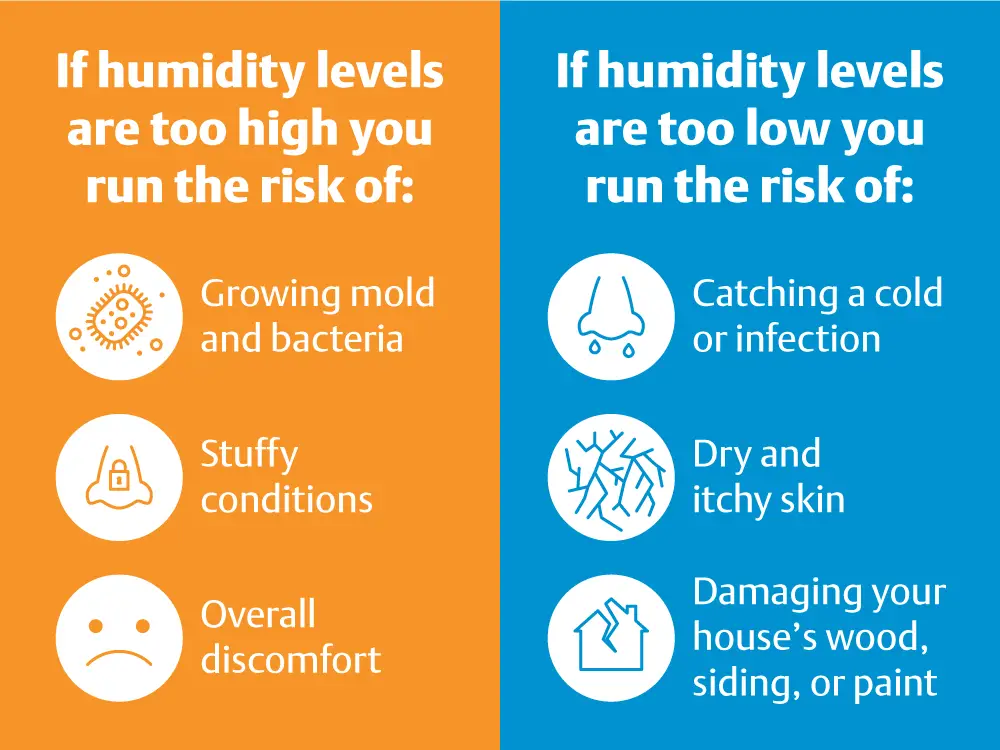
Your home’s humidity level is important for two reasons: your health and the condition of your home.
The ideal humidity level for both your health and your home is between 30-50%. In the winter months, when heating systems are running non-stop, it can be difficult to maintain this level of humidity. This is where a diffuser comes in.
A diffuser can help to increase the humidity in your home, providing relief from dry skin, nosebleeds, and other health problems that can be exacerbated by low humidity. Additionally, maintaining proper humidity levels will help to prevent cracks in wood floors and furniture, peeling paint, and static electricity [1].
What is a diffuser and how does it work?
A diffuser is a device that helps to disperse essential oils into the air. Diffusers come in many different shapes and sizes, but they all work by using heat or ultrasonic waves to break down the oil molecules so that they can be released into the air.
There are many different types of diffusers available on the market, but not all of them will work as well as a humidifier. In general, diffusers that use heat tend to be less effective at dispersing essential oils than those that use ultrasonic waves [2].
Humidifier vs. Essential Oil Diffuser: What’s The Difference?
The short answer is no, you cannot use a diffuser as a humidifier. While both devices emit water vapor into the air, that’s where the similarities end. Here’s a more detailed explanation of the key differences between these two types of devices:
Humidifiers Add Moisture to the Air
As the name suggests, humidifiers add moisture to the air. These devices are designed to increase the humidity in a room by releasing water vapor into the air. By increasing the amount of moisture in the air, humidifiers can help to:
- Ease congestion and sinus pressure caused by colds or allergies
- Prevent dry skin and lips
- Reduce static electricity
- Protect wood furniture and floors from cracking or warping
- Make a room feel warmer
- Essential Oil Diffusers Add Aroma to the Air
An essential oil diffuser is a device that disperses Essence Oils into the air. These oils are typically made from plant extracts and offer a variety of benefits, including:
- Reducing stress and anxiety
- Improving mood and energy levels
- Easing congestion and cold symptoms
- Boosting immunity
- Purifying the air
- Creating a refreshing, pleasant aroma
Because of these differences, it’s not recommended that you use a diffuser as a humidifier or vice versa. Using a diffuser in place of a humidifier can actually be harmful to your health as diffused essential oils can irritate your lungs if the air is too dry. Conversely, using a humidifier in place of a diffuser will not produce the desired aromatherapy benefits as the essential oils will simply evaporate into the air without being dispersed.
Can You Use Essential Oils in Your Humidifier?
The short answer is yes, you can use essential oils in your humidifier! However, it is not recommended to use them undiluted as they could potentially damage the unit. It is best to add a few drops of oil to the water inside the humidifier tank before turning it on. This will help disperse the oil throughout the room and prevent any possible damage to the humidifier.
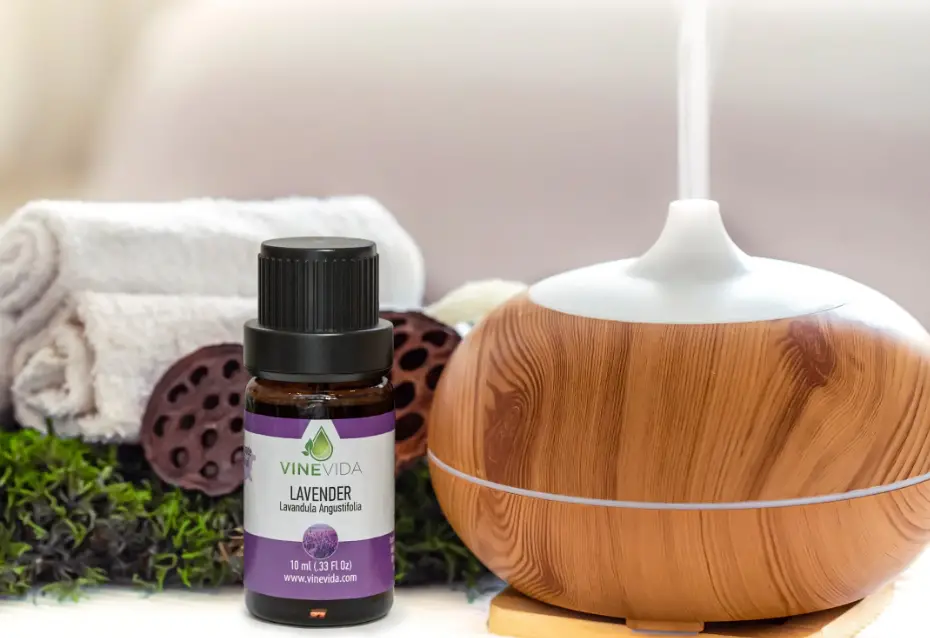
As long as you take these precautions, using essential oils in your humidifier can be a great way to enjoy their benefits while also combating dry winter air. Some of the best oils to use in a humidifier are eucalyptus, peppermint, and lavender. These oils are known for their ability to improve respiratory function, clear congestion, and promote relaxation.
Can You Use a Diffuser Without Oil?
A diffuser needs both oil and water to function properly. Without oil, a diffuser is nothing more than a humidifier. The oil is what gives a diffuser its unique ability to improve mood, health, and overall well-being.
Water is just as important as oil in a diffuser. Not only does it provide the necessary moisture for optimal diffusing, but it also helps to keep the unit cool and prevent overheating.
Water
If you use only water in a diffuser, it will simply be a humidifier. This means it will add moisture to the air, but it won’t provide any of the benefits that come with using essential oils. Moreover, using the diffuser with water without oils is not so effective for humidifying the room because the water will quickly evaporate and won’t have time to be diffused into the air for a long time properly.
Lemon Juice
You can use a diffuser with only lemon juice but this would make the diffuser a citrus air freshener. The lemon juice will evaporate quickly, and it won’t provide any of the benefits that come with using essential oils because there are no oils in the lemon juice. To achieve a citrus air freshener effect, add a few drops of lemon juice to a diffuser with water and essential oils.
Herbs and Spices
To use herbs and spices in a diffuser, you need to make an infusion. This is done by adding the herbs and spices to boiling water and then allowing the mixture to steep for a few minutes. After the infusion has cooled, add it to the diffuser with the appropriate amount of water. You can ask if this mixture will work in a diffuser, and the answer is no. This mixture can be used in a humidifier, but it won’t provide any of the benefits that come with using essential oils because there are no oils in the infusion.
What essential oils can be used in a diffuser?
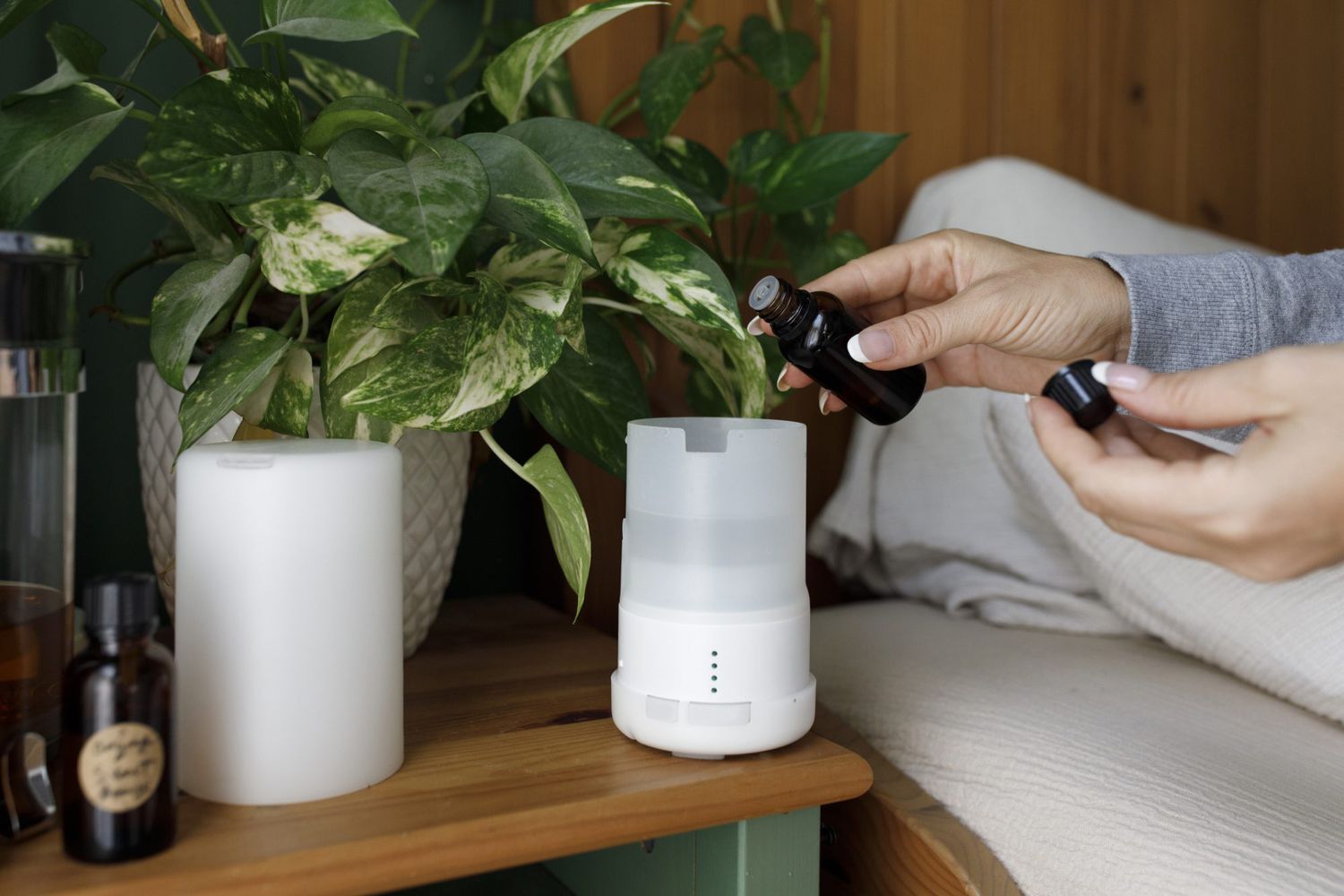
There are a variety of essential oils that can be used in a diffuser, each with its unique benefits. Some of the most popular options include:
- Lavender oil: Lavender oil is well-known for its relaxing and calming properties. It can help to reduce stress and promote better sleep.
- Peppermint oil: Peppermint oil is invigorating and refreshing. It can help to boost energy levels and improve mental clarity.
- Eucalyptus oil: Eucalyptus oil has potent cleansing properties. It can help to purify the air and protect against harmful bacteria and viruses.
- Tea tree oil: Tea tree oil is a powerful natural antiseptic. It can help to fight against infection and promote healing.
- Rosemary oil: Rosemary oil is stimulating and invigorating. It can improve mental alertness and concentration.
- Lemon oil: Lemon oil is refreshing and uplifting. It can boost the immune system and promote a sense of well-being [3].
To use the essential oil in a diffuser, simply add a few drops of the oil to the water in the diffuser and turn it on. When using multiple oils, it is best to start with just a few drops of each and increase the amount as desired.
Which Is Better for Sinus Congestion: A diffuser or a humidifier?
Sinus Congestion is a common ailment that affects millions of people every year. The symptoms can range from mild discomfort to full-blown pain, and often include a stuffy nose, headache, and general fatigue.
There are several over-the-counter treatments available such as nasal sprays, decongestants, and antihistamines. However, these can come with a host of side effects like drowsiness, dry mouth, and rebound congestion.
For many people, a humidifier is a go-to device for relieving sinus congestion. The moisture that humidifiers add to the air helps to thin mucus and make it easier to drain. This can provide significant relief from congestion symptoms.
Diffusers also add moisture to the air, but they do so through a process of evaporation. As the diffuser’s water reservoir evaporates, it adds humidity to the surrounding air.
So, which is better for sinus congestion: a diffuser or a humidifier? There is no clear-cut answer, as both have their pros and cons. Humidifiers tend to be more effective at relieving congestion, but they can also be messy and require frequent cleaning. Diffusers are much easier to use and maintain, but they may not provide as much relief from congestion symptoms. If you’re struggling with sinus congestion, it may be worth trying both a diffuser and a humidifier to see which provides the most relief.
Can a Diffuser Be Used as a Humidifier for Plants?
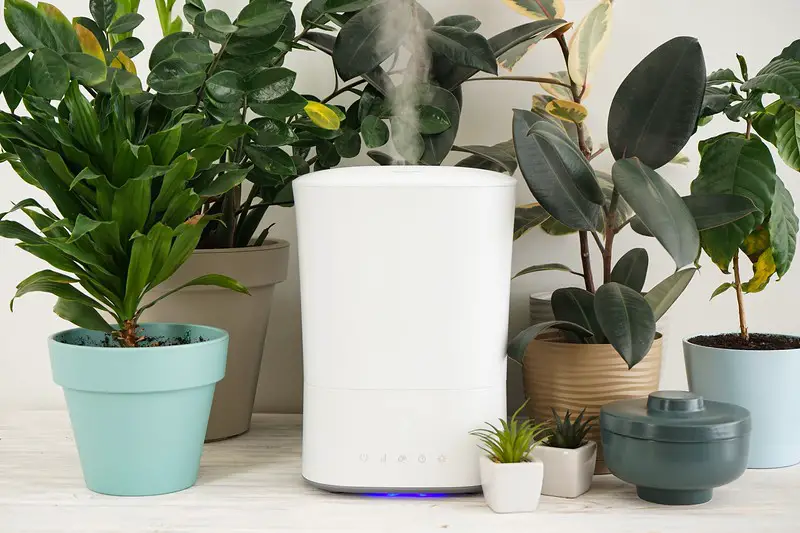
Wintertime is the diffuser season! The air is drier, the heating system is cranked up, and static electricity abounds. A diffuser can help fight all of these problems by putting moisture back into the air. But what about plants? Can a diffuser be used as a humidifier for plants? The short answer is yes! It is really possible to use a diffuser as a humidifier for plants. Here are a few things to keep in mind when using a diffuser as a humidifier for plants:
- Choose the right size diffuser. Smaller diffusers will work for smaller plants, while larger diffusers will be better for larger plants.
- Fill the diffuser with water. Distilled or filtered water is best, but you can use tap water if necessary.
- Add a few drops of essential oil to the diffuser. This is optional, but it can help to add a bit of extra moisture to the air.
- Place the diffuser near the plant. The closer the diffuser is to the plant, the more effective it will be.
- Run the diffuser for a few hours each day. This will help to keep the air around the plant moist.
With these tips in mind, using a diffuser as a humidifier for plants is a great way to fight dry winter air and keep your plants healthy and happy.
There are several benefits to using a diffuser as a humidifier for plants. First, it can help to increase the humidity around the plant. This is especially beneficial during the winter when the air is drier and can cause the plant to become dried out.
Second, using a diffuser as a humidifier for plants can help to reduce static electricity. This is because the air around the plant will be moisture and will not allow static electricity to build up. Finally, using a diffuser as a humidifier for plants can help to keep the leaves of the plant from becoming brittle. This is because the moisture in the air will help to keep the leaves supple and prevent them from drying out and breaking [4].
Comparison of Using a Diffuser and a Humidifier for Adding Moisture to the Air
Many people wonder if they can use a diffuser as a substitute for a humidifier to add moisture to the air. Below is a comparison of using a diffuser and a humidifier for this purpose, helping you understand the differences and considerations between the two.
| Aspect | Diffuser | Humidifier | Advantages | Considerations |
|---|---|---|---|---|
| Moisture Output | Diffuses essential oils and water into the air, providing a limited increase in humidity. | Specifically designed to release a larger amount of moisture into the air, effectively humidifying the room. | Suitable for adding a subtle fragrance and limited moisture to a small area. | Not as effective as a humidifier for maintaining optimal humidity levels in larger spaces or during dry seasons. |
| Humidity Control | Does not offer precise humidity control and may not significantly impact humidity levels. | Allows for precise control of indoor humidity levels to ensure comfort and health benefits. | Effective for alleviating dry air discomfort and addressing health concerns related to low humidity. | May require regular cleaning to prevent mold and bacterial growth in the unit. |
| Essential Oils | Designed for essential oil diffusion, offering aromatherapy benefits and pleasant scents. | Primarily focused on humidifying the air; some models may have essential oil trays as an additional feature. | Enhances ambiance with aromatherapy and fragrant oils while diffusing moisture into the air. | Humidifiers may have separate trays for essential oils, but their primary function is humidity control. |
| Energy Consumption | Generally energy-efficient and consumes less power compared to humidifiers. | May have slightly higher energy consumption due to its larger water reservoir and moisture output. | Saves on energy costs while maintaining humidity in smaller areas. | Regular cleaning and maintenance are essential for both devices to operate efficiently. |
| Air Quality | Improves air quality by diffusing essential oils and creating a pleasant atmosphere. | Enhances air quality by humidifying the room and reducing allergens and respiratory irritants. | Provides an enjoyable aroma and mood-enhancing benefits while diffusing moisture into the air. | Humidifiers are more effective for improving air quality and respiratory health through humidity control. |
Explanation of the table:
- The table provides a comparison of using a diffuser and a humidifier for adding moisture to the air, addressing aspects such as moisture output, humidity control, essential oils, energy consumption, and air quality.
- Each aspect is described, highlighting the advantages and considerations associated with using a diffuser or a humidifier for your specific needs.
FAQ
Can you put just water in a diffuser?
Most diffusers are designed to be used with essential oils, but you can put just water in a diffuser if you want. The main purpose of using water in a diffuser is to help humidify the air and prevent dryness, so it can be beneficial during the winter months. However, keep in mind that diffusing just water will not produce the same aromatherapeutic benefits as using essential oils.
Can I use a diffuser as a humidifier?
You can use a diffuser as a humidifier, but it is important to choose the right type of diffuser. There are two main types of diffusers: ultrasonic and nebulizing.
Ultrasonic diffusers use vibrations to create a fine mist of water and essential oils, while nebulizing diffusers use compressed air to create a stream of oil droplets. Both types of diffusers can be used as humidifiers, but nebulizing diffusers are more effective at adding moisture to the air. However, it will be better to use a humidifier that is specifically designed to be used as a humidifier.
Do diffusers help with congestion?
Diffusers can help with congestion by adding moisture to the air, which can help loosen up mucus and make it easier to breathe. In addition, some essential oils have properties that can help clear congestion. For example, eucalyptus oil is known for its ability to help relieve respiratory problems.
Can diffusers make you sick?
If you are using a diffuser with essential oils, you may experience some side effects such as headaches, nausea, or dizziness. This is because essential oils are concentrated forms of plant material and can be irritating to some people. If you experience any adverse effects, stop using the diffuser and consult a doctor if necessary. Diffusing just water will not cause any adverse effects.
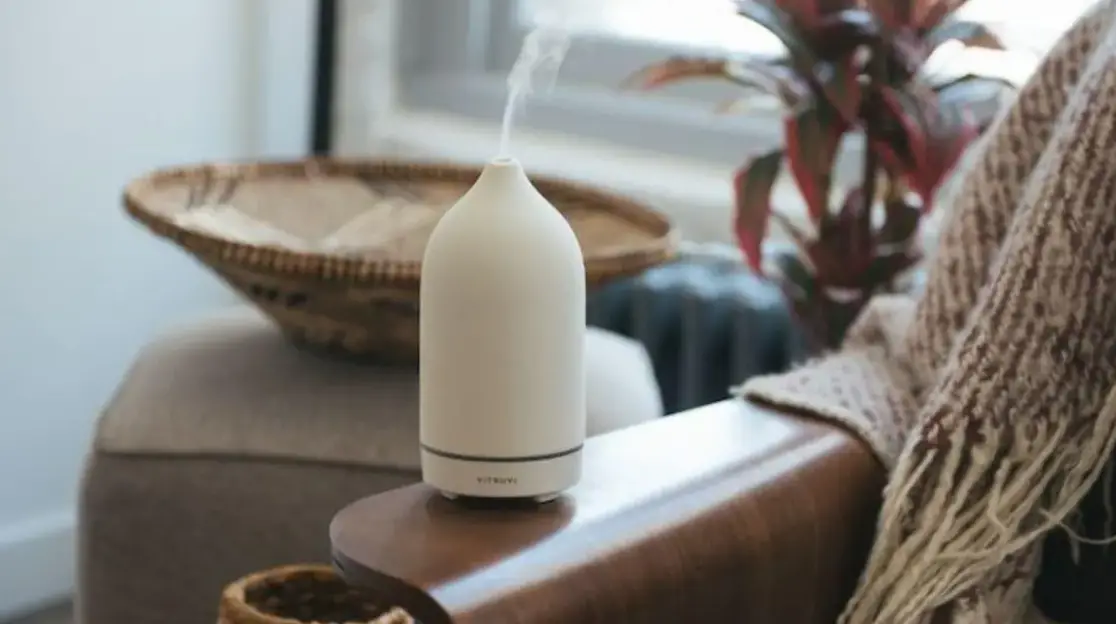
Do diffusers use a lot of electricity?
No, diffusers do not use a lot of electricity. In fact, most diffusers use less than 10 watts of power, which is about the same as a night light.
How long should I run my diffuser?
It is safe to run your diffuser for as long as you like. However, if you are using essential oils, it is best to diffuse for 30 minutes to 1 hour at a time and then take a break for an hour or two. This will help prevent any adverse effects from the essential oils.
What can I put in my diffuser for a cold?
There are a few different essential oils that can help relieve cold symptoms. For example, eucalyptus oil is known for its ability to clear congestion. Other oils that can help relieve cold symptoms include peppermint oil, lemon oil, and lavender oil.
Can I put essential oils in my diffuser without water?
No, you should not put essential oils in your diffuser without water. Essential oils are concentrated forms of plant material and can be irritating to some people. In addition, diffusing essential oils without water will decrease the lifespan of your diffuser.
Is it safe to use a diffuser with water as a makeshift humidifier?
Yes, you can use a diffuser with water to increase humidity in a room, but it won’t be as effective as a dedicated humidifier. While a diffuser can add moisture to the air, it may not provide the same level of humidity control or coverage as a humidifier.
What are the differences between a diffuser and a humidifier in terms of adding moisture to the air?
Diffusers primarily disperse essential oils into the air and provide some moisture as a byproduct, while humidifiers are designed specifically to increase humidity levels. Humidifiers release more moisture into the air, making them better suited for addressing dry air concerns.
Can a diffuser be used as a temporary solution to add humidity to a room?
A diffuser can be used as a temporary solution to increase humidity in a small area or a specific room. However, it may not be as effective as a humidifier, and you should monitor the room’s humidity levels to ensure they reach a comfortable range.
Are there any limitations or considerations when using a diffuser for humidification?
When using a diffuser for humidification, be aware that it may not provide consistent or significant humidity levels, especially in larger spaces. Additionally, prolonged use of essential oils in the diffuser may lead to issues like oil buildup, so it’s important to clean it regularly.
Can I use a diffuser with water to alleviate dry air symptoms in a small room?
Using a diffuser with water can help alleviate dry air symptoms in a small room, such as a bedroom or office. It can add some moisture to the air and provide a pleasant fragrance if essential oils are added. However, for larger areas, a dedicated humidifier is generally more effective.
Is it recommended to use a diffuser as a humidifier for a child’s room?
Using a diffuser as a makeshift humidifier in a child’s room can be suitable for short-term relief from dry air, but it’s essential to monitor the humidity levels. For consistent humidity control, especially during dry winter months, a dedicated child-friendly humidifier is often a better choice.
Useful Video: Humidifier vs Diffuser
Conclusion
Humidifiers and Diffusers are usually used for different purposes but in some cases, a diffuser can double as a humidifier. This is only possible if the diffuser has multiple mist settings, runs continuously for a long time, and can hold a large amount of water. While this might be possible, it is not recommended to use a diffuser as your primary humidifier because diffusers are not designed to raise the humidity levels in a room. If you are looking for a device to help with the dry winter air, it is recommended to get a humidifier specifically designed for that purpose.
References
- https://www.griffithenergyservices.com/articles/the-importance-of-balancing-your-homes-humidity
- https://www.lifestylepackaging.com/useful-resources/diffuser-packaging/how-do-essential-oil-diffusers-work/
- https://www.healthline.com/health/how-to-use-essential-oils
- https://sproutsandstems.com/creating-humidity-for-your-houseplants/





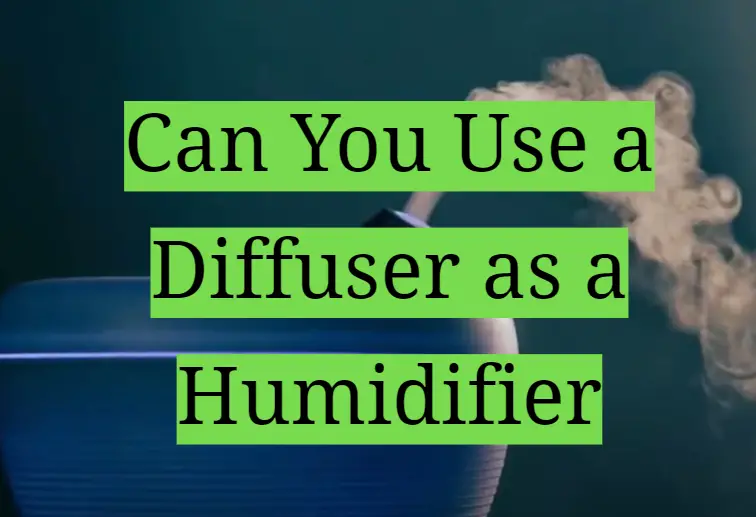




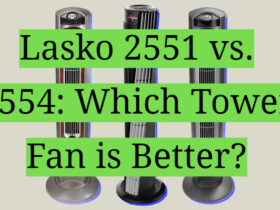



Leave a Reply